Albert Hetterle is a Actor born on 30 october 1918

Albert Hetterle (31 October 1918 – 17 December 2006) was a German actor who also became a Berlin theatre director.
Source : Wikidata
Albert Hetterle

- Infos
- Photos
- Best films
- Family
- Characters
- Awards
Birth 30 october 1918
Death 17 december 2006 (at 88 years)
Death 17 december 2006 (at 88 years)
Usually with
Filmography of Albert Hetterle (9 films)
Actor
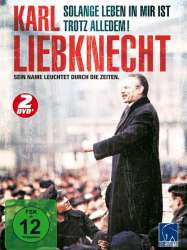 , 1h54
, 1h54Directed by Günter Reisch
Genres Drama, Biography, Historical
Themes Politique, Political films
Actors Mikhaïl Oulianov, Albert Hetterle, Jutta Hoffmann, Erika Dunkelmann, Zofia Mrozowska, Siegfried Weiss
Roles Paul Schreiner
Rating72%





 , 1h54
, 1h54Directed by Günter Reisch
Genres Drama
Themes Political films
Actors Albert Hetterle, Erika Dunkelmann, Siegfried Weiss, Hans Finohr, Adolf Fischer, Werner Dissel
Roles Paul Schreiner
Rating72%





The film opens in Berlin in 1914, as Germany is preparing for World War I. Liebknecht (Schulze) receives a call from a fellow lawyer and revolutionary, Mr. Rauch, that documents have been found proving the German heavy arms industry's secret involvement in the buildup to the war. He brings these documents to a meeting of the Reichstag, accusing Gustav Krupp and his company of bribing officials to release military secrets. In addition to this, Krupp and his company wrote to ask the French media to state that the French military has twice as much artillery as they actually possess so that they may provoke a surge in militarism. Afterward, while celebrating a friend's wedding, Liebknecht learns of the assassination of Archduke Franz Ferdinand, recognizing that this is the war the German imperialists were seeking. However, the resources for war still need to be approved. Liebknecht immediately begins campaigning among the public, denouncing the war as a means to secure profit for the capitalists. In an SPD party meeting, Liebknecht is one of only fourteen members to vote against the war credits. In the subsequent Reichstag meeting, he votes with the party discipline in favor of the war credits, to the public's surprise. He announces in the party meetings that he will no longer yield to party discipline and will stand by his anti-militarist principles even if the party leadership will not do the same. Liebknecht is the only one of the Reichstag — including 111 SPD representatives — to vote against the war loans, resulting in a number of death threats and work bans. Despite his immunity as a Reichstag member, Liebknecht is called to serve on the front as a sapper. It is here that he writes his 1915 manifesto, "The main enemy is at home!" The manifesto is passed among his fellow soldiers on the front before returning home. While he is away, Paul Schreiner, whose wedding Liebknecht attended earlier in the film, dies on the front. This leaves his wife Käthe to raise their newborn child alone and make Liebknecht's manifesto public.
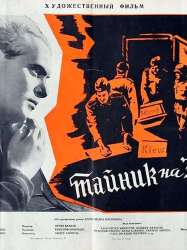
Secret Archives on Elbe (1963)
, 1h20Directed by Kurt Jung-Alsen
Genres War, Adventure, Spy
Themes Spy films, Political films
Actors Albert Hetterle, Günther Simon, Rudolf Ulrich, Helga Göring, Adolf Fischer, Kurt Jung-Alsen
Roles Oberst Rybin
Rating60%





Peu avant la fin de la Seconde Guerre mondiale. Le gruppenführer Upitz sait que la guerre est bientôt terminée. Il cherche à tirer profit de ce moment et accepte une offre des Américains. Il obtiendra l'impunité s'il leur remet les archives secrètes de la Gestapo qui sont cachés à Meißen, le long de l'Elbe. Elles regroupent toutes les données sur les agents présents en Union soviétique et dans les Balkans. Mais le contre-espionnage soviétique est aussi à la recherche de ces archives, Upitz les mène vers une fausse piste.

Kapitäne bleiben an Bord (1959)
Directed by Martin Hellberg
Genres Adventure
Themes Films about animals, Seafaring films, Transport films
Actors Christel Bodenstein, Rudolf Ulrich, Albert Hetterle, Ruth Maria Kubitschek, Hannjo Hasse
Roles Geelhaar
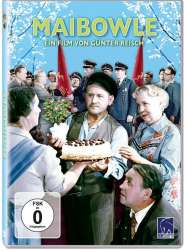
The Punch Bowl (1959)
, 1h30Directed by Günter Reisch
Genres Drama, Comedy, Musical
Themes Musical films
Actors Christel Bodenstein, Albert Hetterle, Erika Dunkelmann, Fritz Diez, Jürgen Holtz
Wilhelm Lehmann is informed that he will receive the Order of the Banner of Labor on his sixty-fifth birthday, for being the best worker in the most successful chemical plant in the country. However, it is soon made clear that all his grown up children have other plans for the day, and none of them can arrive to honor their father and their mother Auguste. But, after a series of comical mistakes that lead to utter pandemonium, all the sons and daughters eventually appear to greet Wilhelm as he is awarded the Order. The whole family drinks the traditional May wine, as they have done in every year.
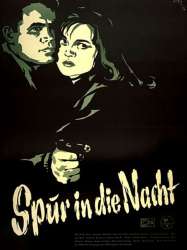
The Track in the Night (1957)
Directed by Günter Reisch
Genres Drama, Crime
Actors Ulrich Thein, Raimund Schelcher, Annekathrin Bürger, Friedrich Gnaß, Albert Hetterle
Roles Offizier

Drei Mädchen im Endspiel (1956)
Directed by Kurt Jung-Alsen
Genres Comedy
Actors Albert Hetterle, Rudolf Ulrich
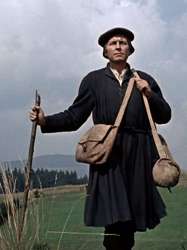
Thomas Müntzer (1956)
, 1h59Directed by Martin Hellberg
Genres Drama, Biography, Historical
Actors Wolf Kaiser, Heinz Giese, Ruth Maria Kubitschek, Maly Delschaft, Ulrich Thein, Franz Arzdorf
Roles Aleander
Rating71%





At 1519, the teachings of Martin Luther sweep through the German principalities. They are welcomed by the peasants, who hope that the new doctrines will help to liberate them from the oppressive yoke of the nobility and the magistrates. The young pastor Thomas Muentzer embraces Lutheranism, but he is more radical in his support for the peasants.
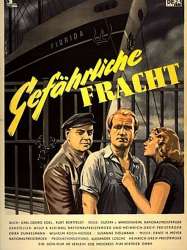
Gefährliche Fracht (1954)
Directed by Gustav von Wangenheim
Genres Drama, Adventure
Actors Erika Dunkelmann, Hannjo Hasse, Eduard von Winterstein, Theo Shall, Kurt Jung-Alsen, Rudolf Ulrich
 Connection
Connection